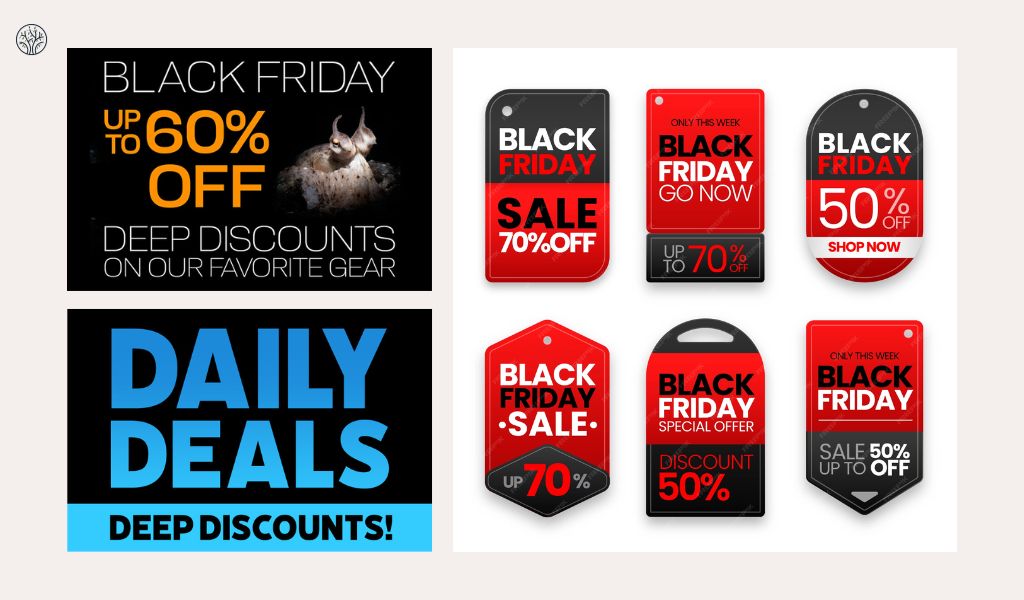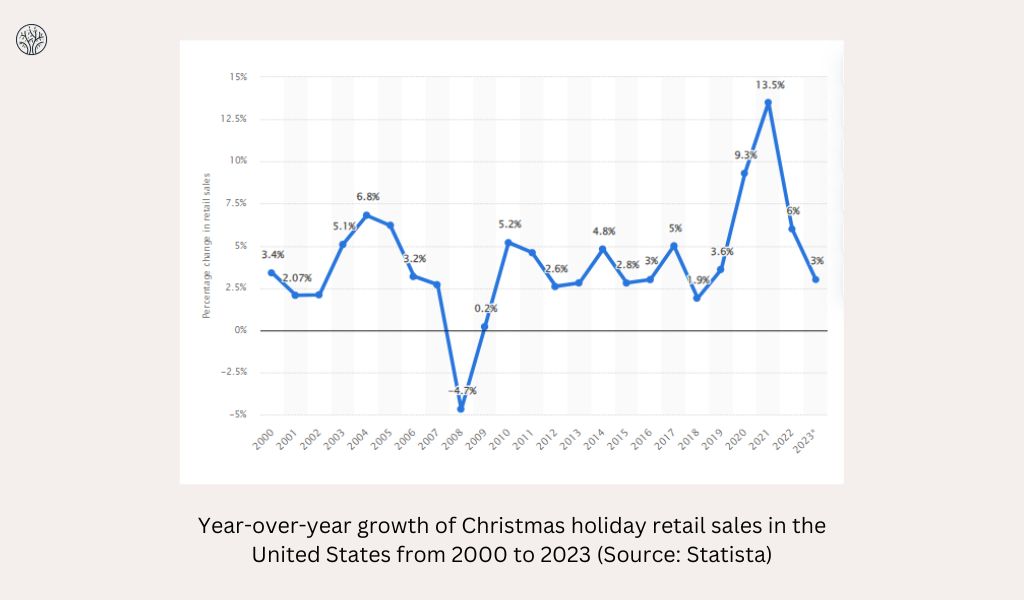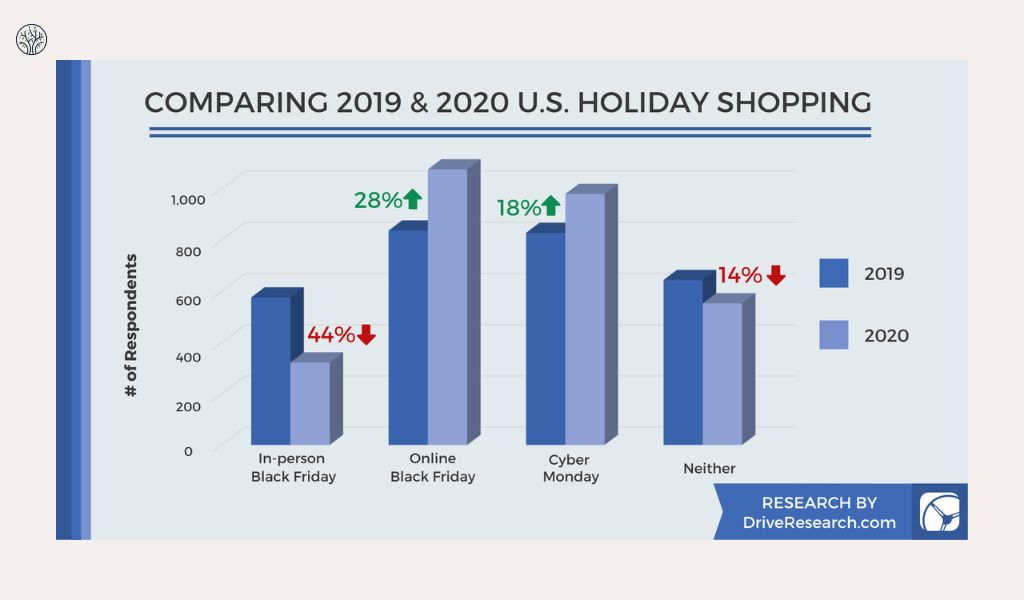Many are eager for the upcoming Black Friday to get deep discounts this November. However, there are some opinions saying Christmas sales have more inventories than Black Friday, and you can get better deals on most items. Then, are Black Friday deals better than Christmas or reverse?
The answer varies depending on your needs and preferences. Read on to explore various facets of the shopping seasons to offer a comprehensive understanding.
Key Takeaways
- Black Friday stands out for its significant savings, especially in electronics, toys, and appliances. Its short duration creates a fast-paced shopping environment, urging customers to make quick decisions.
- Many retailers prefer Black Friday due to the high traffic and revenue generated in a single day.
- Christmas sales offer a less hurried shopping experience, with more product variety but generally milder discounts compared to Black Friday.
- The period after Christmas, including January sales, presents clearance deals and a chance for shoppers to treat themselves or plan for next year’s gifts.
- Online shopping has surged during Black Friday, offering convenience, a broader selection, and exclusive online deals.
Are Black Friday Deals Worthy?
Black Friday is one of the biggest shopping days in the United States. This day presents a significant opportunity for shoppers and retail businesses worldwide. It is particularly evident when looking at the 2022 Black Friday statistics:
- Worldwide, retailers earned a staggering $65.3 billion during Black Friday sales.
- In the United States alone, the event drew 196.7 million shoppers.
- On average, American consumers enjoyed savings of 24%.
Such figures highlight why Black Friday deals are worth it.
Deep Discounts On Specific Categories

Black Friday is renowned for deep discounts on specific categories, including toys, furniture, and appliances.
But that’s not all: Retailers also offer various deals on clothing, beauty products, and luxury goods, making it a prime time for shoppers to buy early Christmas gifts. Some of the best Black Friday deals this year are:
- Alienware Gaming Deals: Dive into gaming with Alienware’s rigs starting at $799 and monitors from just $79.
- Anker’s Power Deal: Grab power banks starting at a wallet-friendly $25, their lowest price ever.
- Amazon’s Alexa-Exclusive Sale: Enjoy a hefty 54% discount on Blink cams, Fire TV Sticks, and more.
- AT&T’s Phone Bonanza: Get the iPhone 15 Pro or Pixel 8 for free with an unlimited plan.
- Best Buy’s Tech Specials: Score deals on MacBooks at $899 and smart TVs from an incredible $69.
- Dell’s Computer Savings: Find laptops for $299 and desktops for $449.
- DreamCloud Sleep Sale: Sleep comfortably with 50% off all mattresses.
- Home Depot’s Home Improvement Discounts: Save up to 45% on tools, appliances, and more for your home projects.
Short Duration For Fast-Paced Shopping
Traditionally, Black Friday spans just four days, building a sense of urgency as discounts might not be available after the weekend. However, as mentioned in our last blog about Black Friday 2023 trends, some retailers even start their Black Friday deals earlier, turning it into a week-long shopping festival.
Still, the fleeting nature of these offers often urges shoppers to make impulsive purchases, sometimes leading them to buy items they don’t genuinely need. Thus, the true winners of Black Friday are those who come prepared with a clear idea of their shopping needs and wants.
Why Retailers Prefer Black Friday?
In fact, different retailers find Black Friday more advantageous depending on their products and customer behavior. For instance, Coast benefits from Black Friday for selling occasion dresses well in time for Christmas parties:
“Our customers will buy their occasion dresses before Christmas, and Black Friday is the perfect excuse as they will receive exclusive discounts! Over Christmas, we will only be running our end-of-season sale, which is nearer the end of December – too late for the customer to buy their Christmas Party Dress.”
As noted by David Tapp from Pro:Direct Sport, Black Friday brings in more traffic and revenue on a single day compared to the gradual sales increase over Christmas.
These factors combine to make Black Friday a more pivotal sales event for many retailers compared to the extended Christmas shopping period.
Are Christmas Deals Better Than Black Friday Sales?
As we understand how Back Friday benefits retailers and shoppers, it’s time to consider: Are Black Friday deals better than Christmas sales? Are the offers during this yuletide season just as tempting, or does Black Friday hold the upper hand in savings?
Look at this chart:

As we can see, Christmas holiday retail sales growth in the United States has seen an upward trend since 2000, with a notable increase after the 2008 recession. For 2023, holiday retail sales were projected to grow by about 3%. These numbers indicate that the Christmas sale remains a crucial time for both retailers and consumers.
Long Duration For Relaxed Shopping
Christmas sales, stretching from November through December, offer a more relaxed shopping experience. This extended period allows shoppers to browse at their leisure, free from the rush often associated with limited-time deals.
While the discounts during this season might not be as steep as those seen on Black Friday, the broader selection of products ensures shoppers are more likely to find exactly what they’re looking for.
Moreover, most consumers in the U.S. start their holiday shopping before Thanksgiving, with only 9% delaying it until December. As a result, shopping in the Christmas sale means less competition and more time for thoughtful selection.
Is It Better to Buy Before or After Christmas?

Timing is everything when it comes to Christmas shopping. While there are enticing discounts in the weeks leading up to Christmas, the post-Christmas period, starting with Boxing Day is notorious for clearance sales. But it’s a double-edged sword; the variety of items available may not be as diverse as during Black Friday, with retailers looking to empty the remaining holiday inventory.
What Retailers Say?
A few retailers regard Christmas as a more crucial period, noting its emphasis on gift-giving. This aspect tends to attract more online shoppers as they seek presents for others during this festive season.
Retailers who favor the Christmas season highlight its extended duration, allowing for more sustained sales, especially in categories like fashion, where sales often spike as people purchase gifts closer to the holiday.
Gabriela Bergamasco from Nike offers a balanced view, seeing both Black Friday and Christmas as vital retail periods, but for different reasons: Black Friday is a time when consumers primarily shop for themselves. Meanwhile, Christmas is more towards buying gifts for others, making the two seasons complementary.
Are January Sales More Beneficial?
Besides Black Friday and Christmas, the January sales are also a great period for shoppers with new beginnings and fresh deals. This period isn’t solely about offering 50% discounts. It’s also about creating an engaging experience that encourages customers to return all year round.

January sales provide a delightful opportunity to indulge in self-reward after getting through another festive season in Ireland, especially with the allure of reduced prices.
Interestingly, some savvy shoppers also use these sales to buy Christmas gifts for the following year, a strategy worth noting.
Ultimately, both Black Friday and January sales share a common goal: providing savings on favorite brands. The critical difference lies in the shopping focus, whether for holiday gifts or personal indulgences.
Benefits of Online Shopping During Black Friday
In recent years, online shopping has become a game-changer for Black Friday. A study conducted by Drive Research in 2020, surveying 2,000 U.S. consumers, revealed that a mere 16% planned to shop in person for Black Friday that year.
The research also showed a significant shift towards online shopping, with a projected 28% increase in online Black Friday purchases compared to 2019.

The most common reasons for this change are overcrowding, safety concerns, better online deals, parking issues, and more.
Online shopping during Black Friday brings numerous benefits that make your buying experience smoother:
- Convenience: Shopping online eliminates the need to stand in long lines or navigate crowded stores. You can shop from your home anytime, making it highly convenient.
- Broader Selection: Online stores often offer a wider range of products than physical stores. They allow you to access a vast selection of brands and items from different retailers all in one place.
- Easy Price Comparisons: Comparing prices and finding the best deals is simpler online. Shoppers can quickly check various websites to ensure they’re getting the lowest price for a product.
- Exclusive Online Deals: Some Black Friday deals are exclusive to online platforms, offering unique savings not available in physical stores.
- Easier Access to Reviews: When shopping online, it’s easy to access customer reviews and ratings, helping you make more informed purchase decisions.
The debate between online and in-store shopping during Black Friday is still ongoing. While online shopping offers convenience and access to a broader range of deals, in-store shopping has bonuses, including instant gratification and the ability to inspect products physically.
FAQs
Is Black Friday considered a Christmas sale?
Traditionally seen as the beginning of the holiday shopping season, Black Friday is famous for the deep discounts and large crowds at major retail stores. This day typically signifies the informal beginning of the Christmas shopping spree. Therefore, retailers across the U.S., Europe, and other regions aim to capitalize on this excitement and enthusiasm.
How do retailers differentiate between Black Friday and Christmas offerings?
Retailers often employ different strategies for Black Friday and Christmas sales. Black Friday sales typically include deep discounts on electronics, appliances, and toys.
Meanwhile, Christmas sales encompass a wider variety of products, not just limited to electronics but extending to clothing, home decor, and more general gift items. The deals and products are tailored more towards gift-giving, catering to diverse customer needs and preferences.
So, what’s your take on the Black Friday versus Christmas shopping debate? Do you prefer the thrill of Black Friday deals or the extended leisure of Christmas sales? Please share your insights and stories in the comments below.









